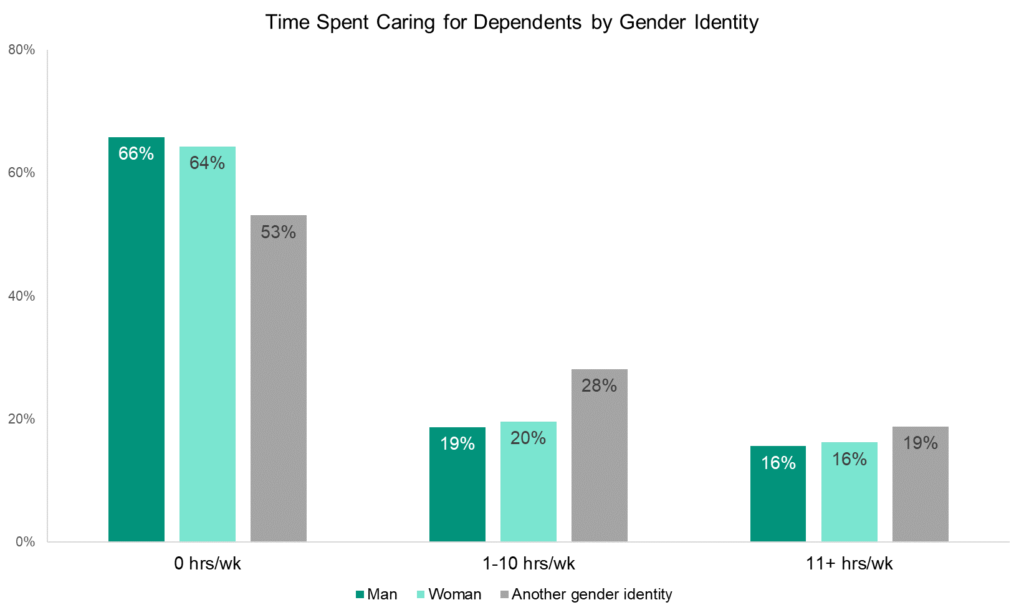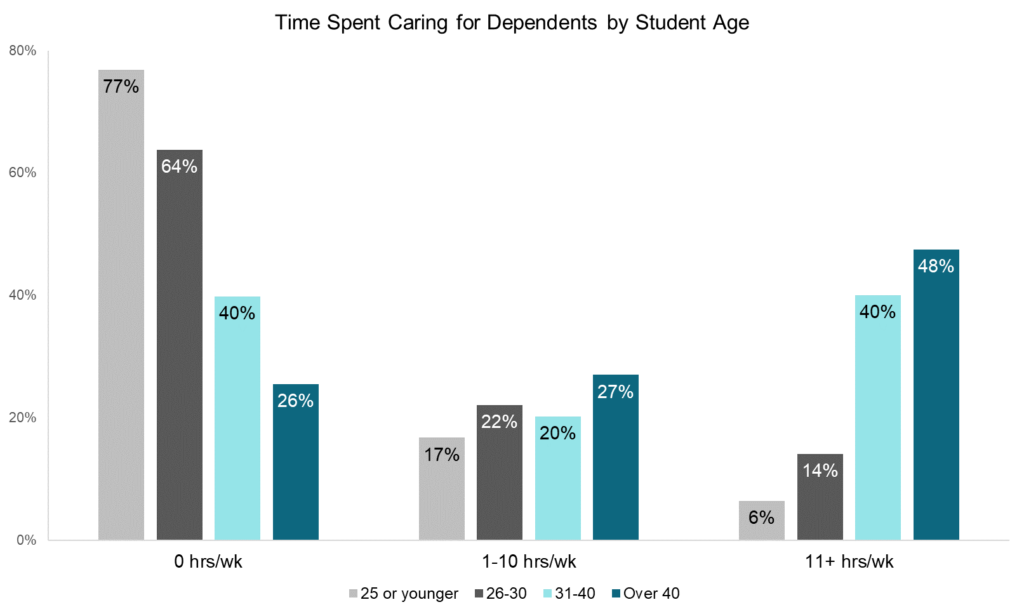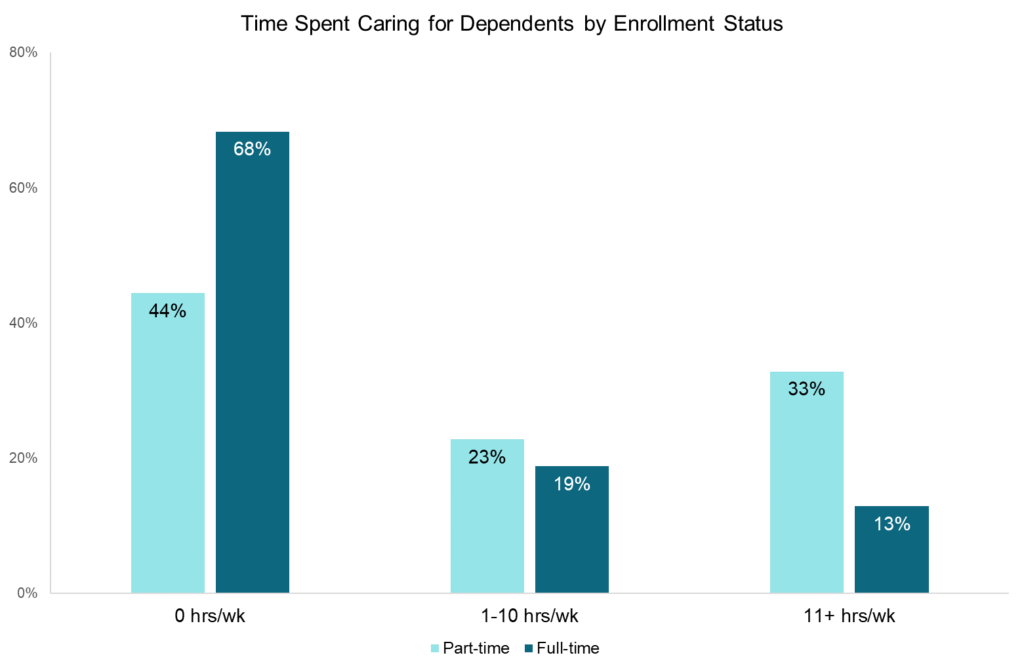Law students with support networks are more likely to be successful in their studies, but students who are interdependent with others may also bear substantial caretaking duties. In the analysis of how students use their time, LSSSE asks about how many hours per week respondents provide care for dependents living in their household (parents, children, spouse, etc.). We decided to dig into the data to see which students are most likely to spend time caring for others and how caretaking duties interact with measures of student stress and satisfaction.
Demographics of Caretaking
Among law students, men and women are equally likely to report spending some amount of time each week caring for dependents who live with them. Thirty-five percent of men and 36% of women spend at least one hour per week taking care of dependents. Students of other gender identities spend somewhat more time on caretaking duties, with almost half (47%) spending at least an hour per week.

As law students get older, they tend to spend more time on caretaking tasks. About 77% of students 25 or younger spend no time at all caring for dependents during the week, but only 26% of students over 40 can report the same. In fact, about half of students over 40 spend eleven or more hours per week taking care of dependents. About 40% of students in their thirties have similarly intense caretaking roles, but that figure drops dramatically for students under 30.

Part-time students are more likely than full-time students to spend some time each week caring for dependents. Fifty-six percent of part-time students report caring for dependents compared to 32% of full-time students. One-third of part-timers spend eleven or more hours per week caring for dependents while just 13% of full-timers report the same.

Overall, the LSSSE data show that there are variations in the time students spend caring for children, parents, and others. Older students and part-time students are more likely to spend time caring for dependents, relative to their younger and full-time counterparts. Interestingly, men and women are about equally likely to engage in caretaking duties. Next week, we will explore how caretaking responsibilities interact with law students’ stress levels and their overall satisfaction with the law school experience.
